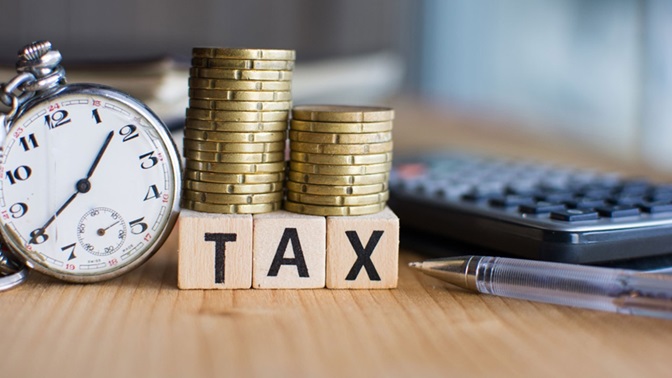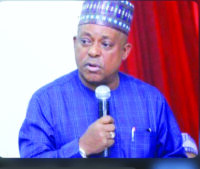By Chinwendu Obienyi
Last week, the Nigerian Senate passed the controversial tax reform bills, after months of intense politicking.
These executive documents aim to boost government revenue and streamline tax administration.
The initiative, central to President Bola Tinubu’s economic agenda, seeks to address the country’s low tax-to-GDP ratio of 10.8 per cent and reduce reliance on borrowing to finance the national budget.
Specifically, the Senate approved four major tax reform bills namely; Nigeria Revenue Service (Establishment) Bill, the Nigeria Tax Administration Bill, the Nigeria Tax Bill 2024, and the Joint Revenue Board (Establishment) Bill, marking the most significant legislative effort in decades to overhaul Nigeria’s fragmented and inefficient tax system.
The bills propose an increase in value-added tax (VAT) from 7.5 per cent to 12.5 per cent starting next year and include amendments to Nigeria’s oil law, transferring fiscal duties like royalty and petroleum profit tax collection to the new Nigeria Revenue Service (NRS).
The NRS is set to replace the Federal Inland Revenue Service, consolidating tax collection across federal, state, and local levels to eliminate redundancies and improve efficiency.
Components of the tax reforms
Key highlights of the bills include: the creation of a centralized tax authority, harmonization of tax rules across government levels, and consolidation of various tax laws.
The VAT rate is set to increase incrementally from 7.5 per cent to 15 per cent by 2030. Essential items such as food and medicine will remain exempt to protect low-income households.
Also, the reform consolidates over 60 separate taxes into a streamlined framework, reducing complexity for taxpayers and encouraging compliance. Small businesses with annual turnovers below N50 million will be exempt from corporate income tax, while larger corporations will see a gradual reduction in rates from 27.5 per cent to 25 per cent by 2026.
To enhance transparency and trust in the tax system, the reform includes the establishment of a Tax Ombudsman and specialized tribunals to address taxpayer grievances and disputes.
The Senate also introduced stricter penalties for tax offences, including fines for failure to register or file returns and imprisonment of up to three years for extreme violations. The bills now await harmonization by a joint committee of the Senate and House of Representatives before final review and eventual assent by the President.
The government anticipates that these reforms will double Nigeria’s tax revenue within the next two to three years, increasing the tax-to-GDP ratio to 18 per cent. This boost in revenue is expected to fund critical infrastructure and social services, reducing the country’s dependence on debt.
Senator Sani Musa, chairman of the Senate Committee on Finance, expressed confidence that the proposed tax reform bills will play a significant role in achieving Nigeria’s ambitious $1 trillion economy target.
Challenges and considerations
Despite the potential benefits, the reforms have faced criticism and resistance. Some lawmakers and regional leaders express concerns that changes in revenue distribution, particularly the shift to allocate 60 per cent of VAT revenues to revenue-generating states, could exacerbate regional inequalities.
Additionally, there are apprehensions that the VAT increase could hinder consumption and industry growth, potentially impacting the economy adversely.
In response to these concerns, the government has indicated a willingness to adjust the revenue-sharing formula and other contentious aspects of the reform to ensure equitable outcomes. It stated that “the Joint Revenue Board will coordinate revenue generation across federal and state governments.
Notably, the VAT sharing formula will now be based on the “place of consumption” principle, with 10.0 per cent (previous: 15.0 per cent) allocated to the Federal Government, 55.0 per cent (previous: 50.0 per cent) to States, and 35.0 per cent (unchanged) to Local Governments. Meanwhile, the VAT rate was retained at 7.5 per cent, as the Senate rejected the proposal to raise it to 10.0 per cent.
Experts’ react
Public reactions to the reforms have been mixed. While some Nigerians support the initiative, believing it could incentivise states to improve internally generated revenue, others express skepticism due to historical mismanagement of funds and fear that increased taxes may not translate into improved public services.
The government’s challenge lies in building public trust and ensuring transparent implementation of the reforms. Effective communication and demonstration of tangible benefits will be crucial in gaining widespread support.
Commenting on the development, Senior Tax Policy Analyst at the Nigerian Economic Summit Group (NESG), Dr Tunde Fagbemi, views the reform package as long overdue.
“This is a structural reset for Nigeria’s tax system. The creation of a centralized tax authority and the Joint Revenue Board addresses a long-standing problem of fragmentation and inefficiency. If properly implemented, it could significantly raise Nigeria’s tax-to-GDP ratio”, Fagbemi said.
He added that the harmonization of tax laws across federal, state, and local levels will particularly benefit medium and large enterprises that currently face multiple taxation and inconsistent regulatory demands.
Analysts at Cordros Research, noted that the implementation of the bills is expected to enhance tax efficiency by streamlining administrative processes, support economic growth through targeted tax exemptions outlined in the Nigeria Tax Bill, and strengthen revenue mobilisation over the medium to long term.
On the other hand, Senior Researcher at BudgIT, Chinwe Ukaibe, cautioned that success will hinge on the readiness of tax authorities and institutions.
Ukaibe said, “There is a big difference between passing legislation and implementing it. The new Nigeria Revenue Service must be well-resourced, digitally equipped, and insulated from political interference if it’s to function effectively.”
She added that tax enforcement must be balanced with support for compliance, particularly among small businesses, many of which operate informally.
The approval of these tax reform bills signals a turning point in Nigeria’s fiscal policy. As the country grapples with economic challenges—from debt pressures to declining oil receipts—broadening the tax base and improving collection efficiency have become urgent priorities.
If effectively implemented, the new tax framework could yield long-term benefits by increasing non-oil revenue, reducing fiscal deficits, and improving public service delivery at all levels of government. For businesses and investors, a more transparent and predictable tax environment will also enhance confidence and promote sustainable economic activity.
As the legislation moves closer to enactment, all eyes will be on how swiftly and efficiently Nigeria can translate these ambitious reforms into tangible results.

















Leave a comment